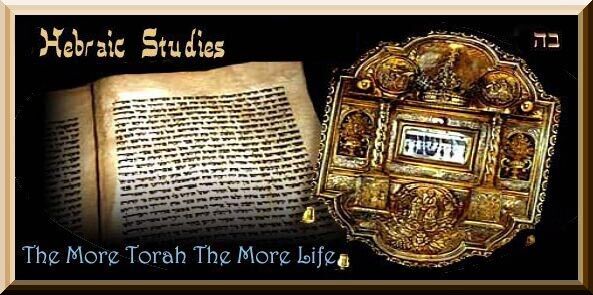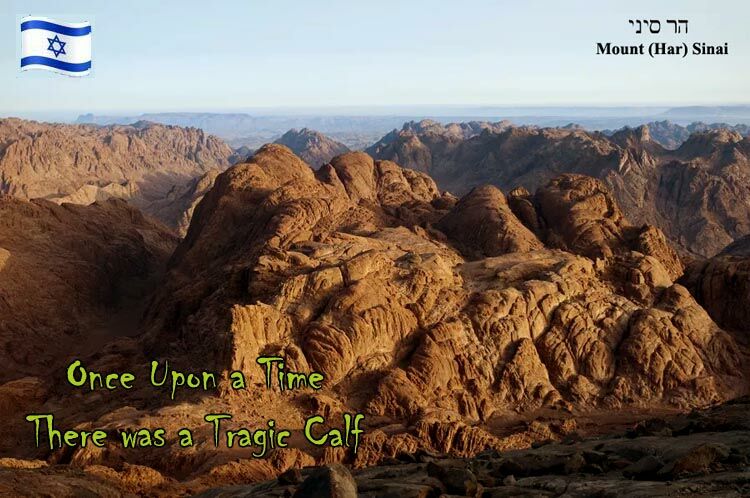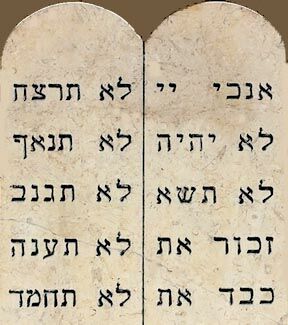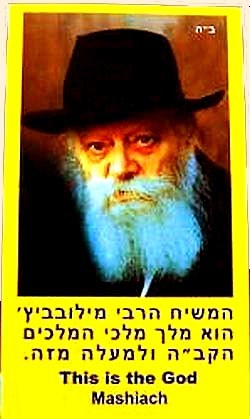The Tragic Calf and its
consequences
Use Google Chrome for this Web Page to load perfectly!

With
Please Note: On this page I will show the four letter
blessed *“Memorial
Name” of the Almighty in Ivrit - ![]() - Y-H-V-H, which we usually pronounce as “Adonai” or “HaShem”.
- Y-H-V-H, which we usually pronounce as “Adonai” or “HaShem”.
*“This is My Name forever,
and this is My memorial to all generations.”
Shemot - Exodus 3:15.
Please do NOT visit this
site on Shabbat or on a
![]()

Let us learn a
powerful lesson from Sefer (Book
of) Exodus - ![]() - Shemot
- Shemot
On this site I will mostly use a version
based on the “Jewish Publication Society”
In the yearly cycle of Torah readings, we approach the last chapters of Exodus with caution.
On the one hand, we celebrate the construction of the Mishkan, the Tabernacle being the recently freed Israelites’ first shared spiritual project. Every hook, board and piece of embroidery is described at length, the details reinforcing the long journey from servitude to the eventual culmination of the building of a wonderful new sacred space representing the nexus of the Divine-human partnership with our Elohim, blessed be He.
Whilst on the other hand, there is also another part of our national development that was accompanied by something we much rather prefer to put well behind us, but there is a reason it remains there in Sefer Shemot, for it is there to remind us how easy it is to forget in a short space of time how Great our Elohim is and what He has done for us, and I do mean for you and me, yes for us ALL!
Although, He punished Mitzrayim (![]() - the ‘Children of Israel’ so quickly
forgot all what Elohim had done for them, and whilst Moshe Rabbeinu was up on
Har Sinai the people somehow decided and ended up to build a golden calf, and
sadly they worshipped it. And why did they do this? All because of Moshe not
having returned fast enough for them. But what saddens me most is that sadly
somehow Acharon - Aaron who should have known better, decided to play a part in
this creation.
- the ‘Children of Israel’ so quickly
forgot all what Elohim had done for them, and whilst Moshe Rabbeinu was up on
Har Sinai the people somehow decided and ended up to build a golden calf, and
sadly they worshipped it. And why did they do this? All because of Moshe not
having returned fast enough for them. But what saddens me most is that sadly
somehow Acharon - Aaron who should have known better, decided to play a part in
this creation.
“And when the people saw that Moshe
delayed to come down from the mount, the people gathered themselves together
unto Acharon - Aaron, and said unto him: ‘Up, make us a god who shall go
before us; for as for this Moshe, the man that brought us up out of the land of
Egypt, we know not what is become of him.' And Acharon said unto them:
‘Break off the golden rings, which are in the ears of your wives, of your
sons, and of your daughters, and bring them unto me.’ And all the people
broke off the golden rings which were in their ears, and brought them unto
Aaron. And he received it at their hand, and fashioned it with a graving tool,
and made it a molten calf; and they said: ‘This is thy god, O Israel,
which brought thee up out of the ![]() .’
And they rose up early on the morrow, and offered burnt-offerings, and brought
peace-offerings; and the people sat down to eat and to drink, and rose up to
make merry. And
.’
And they rose up early on the morrow, and offered burnt-offerings, and brought
peace-offerings; and the people sat down to eat and to drink, and rose up to
make merry. And ![]() spoke unto Moshe - Moses: ‘Go, get thee
down; for thy people, that thou broughtest up out of the
spoke unto Moshe - Moses: ‘Go, get thee
down; for thy people, that thou broughtest up out of the
Tragically this was merely a replay type of
idolatry that took place in Mitzrayim and sadly many of Yisroel had gone astray
and fallen far from Elohim and practiced pagan worship. But, after the great
miracles shown by ![]() Elohim, blessed be His Sanctified Name, it had no place in the lives of B’nei Yisrael, for they now
had the opportunity to have new lives and uphold spiritual monogamy. And yet
with all what Elohim had done for them, the plagues, the parting of the sea,
the daily manna, somehow it was still not enough to achieve an exclusive
relationship. All it took for them to go so far astray to return to paganism
was for Moshe to be absent for too long.
Elohim, blessed be His Sanctified Name, it had no place in the lives of B’nei Yisrael, for they now
had the opportunity to have new lives and uphold spiritual monogamy. And yet
with all what Elohim had done for them, the plagues, the parting of the sea,
the daily manna, somehow it was still not enough to achieve an exclusive
relationship. All it took for them to go so far astray to return to paganism
was for Moshe to be absent for too long.
“Well they had not long enjoyed their
spiritual freedom, thus it was very new to them and it gave them a new kind of
responsibility, the weight of it simply was very isolating. And that is why
Moses’ temporary disappearance on
How long do we think all the events took from Moshe and Acharon first asking the Pharaoh “Let My People go” to the actual departure? The Midrash suggests it could be up to a year, but it could also be as short as around three months. The point is this, so many miracles occurred in whatever time it took, and they were not little unnoticed miracles, but huge miracles, not just little ones, and they obviously affected the entirety of Mitzrayim, but not a single Hebrew was affected. Then the final miracle at Pesach was, that the evil Pharaoh finally allowing us to go.
But, did you realise that there was one other
miracle, it is one that we tend to completely forget! If this miracle had not
happened, we would have left as a poor nation, but remember, when B’nei
Yisrael departed Mitzrayim, we left with huge great riches, a huge amount of
gold and silver and so much more; for ![]() Elohim, blessed be His Sanctified Name, made
sure of it! For He said;
Elohim, blessed be His Sanctified Name, made
sure of it! For He said;
“And I will give this people favour in the sight of the Egyptians. And it shall come to pass, that, when ye go, ye shall not go empty; but every woman shall ask of her neighbour, and of her that sojourneth in her house, jewels of silver, and jewels of gold, and raiment; and ye shall put them upon your sons, and upon your daughters; and ye shall spoil the Egyptians’” Shemot – Exodus 3: 21-22 - (JPS version of the Torah).
We need to understand that our people were tragically living as a nation as slaves for so many years and thus they knew no other kind of life, thus when they departed, they did so not just with more than freedom which our Elohim, blessed be He, had given them, but He also ensured that they also departed with a great deal of wealth!
Thus rabbis, these people could not so easily change their faith from the Elohim who had done so much for them and all those miracles, and what ensured they could cross the sea and escape the Egyptian army, and then swallowed them up and kept them safe. Yet all too soon they “murmured”
How massive was it that on the other side of the Red Sea the miracles continued for Elohim, blessed be He, continued with the amazing miracles for He not only provided “manna from heaven”, also “quails”, and a little later at “Rephidim” water was given by the means of a rock.
“And ![]() spoke
unto Moshe, saying: ‘I have heard the murmurings of the children of
spoke
unto Moshe, saying: ‘I have heard the murmurings of the children of ![]() your Elohim.’ And it came to pass at
even, that the quails came up, and covered the camp; and in the morning there
was a layer of dew round about the
your Elohim.’ And it came to pass at
even, that the quails came up, and covered the camp; and in the morning there
was a layer of dew round about the
“And the people thirsted there (at Rephidim)
for water; and the people murmured against Moshe, and said: ‘Wherefore
hast thou brought us up out of ![]() , saying: ‘What shall I do unto this people? They are
almost ready to stone me.’ And
, saying: ‘What shall I do unto this people? They are
almost ready to stone me.’ And ![]() said
unto Moshe: ‘Pass on before the people, and take with thee of the elders
of
said
unto Moshe: ‘Pass on before the people, and take with thee of the elders
of
And we all know well ![]() - “Aseret
ha-Dibrot”.
- “Aseret
ha-Dibrot”.

Now Rabbis, ask yourselves the question, how
long was it between departure and
Thus with the Rabbi’s having stated that they worshiped the golden calf was mostly because …
“… they
had not long enjoyed their spiritual freedom, thus it was very new to them and
it gave them a new kind of responsibility, the weight of it simply was very
isolating. And that is why Moses’ temporary disappearance on
That is called rabbis attempting to justify
everything, including that cult-like “Chabad-Lubavitch Movement”
who continue to worship and pray to their dead leader,
rabbi

As we look at that evil card above and we will realise how fickle we humans can be, even though they have come to know the Great Elohim, and witnessed His mighty miracles, and our people have been part of the amazing Exodus, saw the sea made perfect to walk to the other side. To have Manna provided as well as the fowl of the air, and then just because Moshe had not returned as yet, they wanted to worship another god, and they created a pagan Golden Calf. And sadly that is what the Lubavitcher’s have done with this rabbi, he has become their Golden Calf. Some will tell you that they do not believe he is the messiah, etc, but why is it that 1. they all pray to him. 2. that the Rabbi in our city, as I believe all Chabadnic’s has this giant photograph of him hanging in his home in a place that everyone that enters sees it. As far as I am concerned it is a “graven image”!
When Moshe heard what was going on down there, like the faithful man he was, well let as read more what is written;
“And ![]() said unto Moshe: ‘I have seen this people,
and, behold, it is a stiffnecked people. Now therefore let Me
alone, that My wrath may wax hot against them, and that I may consume them; and
I will make of thee a great nation. And Moshe besought
said unto Moshe: ‘I have seen this people,
and, behold, it is a stiffnecked people. Now therefore let Me
alone, that My wrath may wax hot against them, and that I may consume them; and
I will make of thee a great nation. And Moshe besought ![]() his Elohim, and said: ‘
his Elohim, and said: ‘![]() , why doth Thy wrath
wax hot against Thy people, that Thou hast brought forth out of the land of
Egypt with great power and with a mighty hand? Wherefore should the Egyptians
speak, saying: For evil did He bring them forth, to slay them in the mountains,
and to consume them from the face of the earth? Turn from Thy fierce wrath, and
repent of this evil against Thy people. Remember Avraham, Yitzchak - Isaac, and
Yisroel - Israel, Thy servants, to whom Thou didst swear by Thine own self, and
saidst unto them: I will multiply your seed as the stars of heaven, and all
this land that I have spoken of will I give unto your seed, and they shall
inherit it for ever.' And
, why doth Thy wrath
wax hot against Thy people, that Thou hast brought forth out of the land of
Egypt with great power and with a mighty hand? Wherefore should the Egyptians
speak, saying: For evil did He bring them forth, to slay them in the mountains,
and to consume them from the face of the earth? Turn from Thy fierce wrath, and
repent of this evil against Thy people. Remember Avraham, Yitzchak - Isaac, and
Yisroel - Israel, Thy servants, to whom Thou didst swear by Thine own self, and
saidst unto them: I will multiply your seed as the stars of heaven, and all
this land that I have spoken of will I give unto your seed, and they shall
inherit it for ever.' And ![]() repented of the evil which He
said He would do unto His people!” Shemot – Exodus 32: 9-14 - (JPS version of the Torah).
repented of the evil which He
said He would do unto His people!” Shemot – Exodus 32: 9-14 - (JPS version of the Torah).
Just imagine for a moment the scene that Moshe - Moses witnessed as he descended the mountain. Sefer (Book of) Exodus - Shemot sadly describes most of our people Yisroel were caught up in a mutinous free-for-all, kind of violent out of control and unstoppable rabble to put it nicely. Moshe waited a day, but then his reaction was swift and unambiguous after the punishment upon the three thousand guilty ones:
“And it came to pass on the morrow, that
Moshe said unto the people: ‘Ye have sinned a great sin; and now I will
go up unto ![]() , peradventure I shall make atonement for your sin.’ And Moshe
returned unto
, peradventure I shall make atonement for your sin.’ And Moshe
returned unto ![]() , and said: ‘Oh, this people have
sinned a great sin, and have made them a god of gold. Yet now, if Thou wilt
forgive their sin; and if not, blot me, I pray Thee, out of Thy book which Thou
hast written.’ And
, and said: ‘Oh, this people have
sinned a great sin, and have made them a god of gold. Yet now, if Thou wilt
forgive their sin; and if not, blot me, I pray Thee, out of Thy book which Thou
hast written.’ And ![]() said unto Moshe:
‘Whosoever hath sinned against Me, him will I
blot out of My book’”. Shemot – Exodus 32: 30-33 - (JPS version of
the Torah).
said unto Moshe:
‘Whosoever hath sinned against Me, him will I
blot out of My book’”. Shemot – Exodus 32: 30-33 - (JPS version of
the Torah).
When Moshe approached Elohim, he named the sin and offered to every leader who followed a model of integrity: Name the wrongdoing and don’t try to couch it in ambiguous language. But then Moshe behaves in a way that his new congregation would never have expected, telling Elohim: “Now, if You will forgive their sin; but if not, erase me from the record which You have written.”
“Yet now, if Thou wilt forgive their
sin; and if not, blot me, I pray Thee, out of Thy book which Thou hast
written.’ And ![]() said unto Moses: ‘Whosoever hath sinned against Me, him will I blot out of My
book. And now go, lead the people unto the place of which I have spoken
unto thee; behold, Mine angel shall go before thee; nevertheless in the day
when I visit, I will visit their sin upon them. And
said unto Moses: ‘Whosoever hath sinned against Me, him will I blot out of My
book. And now go, lead the people unto the place of which I have spoken
unto thee; behold, Mine angel shall go before thee; nevertheless in the day
when I visit, I will visit their sin upon them. And ![]() smote the people, because they made the
calf” Shemot – Exodus 32: 32-35 - (JPS version of the Torah).
smote the people, because they made the
calf” Shemot – Exodus 32: 32-35 - (JPS version of the Torah).
It is as if Moshe is saying to Elohim: My people have sinned, but they are still my people. If they are erased, then I am erased. We must see the construction of the Mishkan through so that these lapses do not happen again. We must build a home together where You, Elohim, can dwell to strengthen this nascent covenant.
Moshe sought to turn regret into improvement. And isn’t that the most basic human project, and believe me, building a portable Mishkan is certainly far harder to construct than just an altar.
Have you ever thought about regret, and the
power of it? Sometimes, if we look backward, it actually can move us forward.
Indeed, we should understand that can learn from our mistakes! We should also
realise that moral regrets tend to last the longest, for often they are rooted
in betrayals, deceptions and sadly they can be due to infidelities. But regrets
can also be harnessed and help you to fuel improvement. The truth is if we will
only understand the errors we have made and straighten up, we can reverse our
lives and reveal what we value the most and if we will only place our faith in
Elohim our Creator first and foremost and build our lives on being a good and
an active Jew. Believe me, you will be so much more successful and will not be
tempted and fail as sadly the
Please remember to say the “Shema Yisroel” twice per day!

Please Note: We refuse to use what is actually proven in the Torah/Tanakh to be a pagan word ‘god’ as it is actually a name of a pagan deity, In Ivrit it is “Elohim” or “El” which is NOT a Name, but an attribute, being what and who Our Creator is, blessed be He! But we must always use it with great love and reverence! I have used ‘HaShem’ for your sake.
“Hear, O Israel: HaShem our Elohim, HaShem is ONE. And thou shalt love HaShem thy Elohim with all thy heart, and with all thy soul, and with all thy might. And these words, which I command thee this day, shall be upon thy heart; and thou shalt teach them diligently unto thy children, and shalt talk of them when thou sittest in thy house, and when thou walkest by the way, and when thou liest down, and when thou risest up. And thou shalt bind them for a sign upon thy hand, and they shall be for frontlets between thine eyes. And thou shalt write them upon the door-posts of thy house, and upon thy gates” Devarim - Deuteronomy 6: 5-9 - (JPS version of the Torah).
Thus to conclude; what we regret shows what we value. Moshe wanted Elohim to know that he still valued his people so that Elohim could still value them. Moshe wanted the people to experience regret so they could renew their energy for what they truly valued.
He was, in essence, saying to Elohim:
“It is not my distance that is the
problem. It is Your distance. The people are afraid of
You. They have witnessed Your
overwhelming power. They have seen You bring the
greatest empire the world has ever known to its knees. They have seen You turn sea into dry land, send down food from heaven and
bring water from a rock. When they heard Your voice at
“And they said unto Moshe: ‘Speak thou with us, and we will hear; but let not Elohim speak with us, lest we die’” Shemot 20: 16 - (JPS version of the Torah).
… “Thus they made a Calf not because they wanted to worship an idol, but because they wanted some symbol of Your presence that was not so terrifying. They need You to be close. They need to sense You not in the sky or the summit of the mountain but in the midst of the camp. And even if they cannot see Your face, for no one can do that, at least let them see some visible sign of Your glory.”
The Mishkan was not built exclusively to
recognize Elohim’s Glory. It was also built to achieve intimacy with ![]() Elohim. As Moshe teaches us, it is by drawing close and recommitting
that we transform our wrongdoing into something durable and lasting.
Elohim. As Moshe teaches us, it is by drawing close and recommitting
that we transform our wrongdoing into something durable and lasting.
I trust this message from between Moshe and
our ever loving Elohim has touched us, for there is so much to be learned from
it, do not look toward what we see outside, when what we really have so much
closer to home is so much more valuable, and that is our faith in Elohim,
blessed be He!
![]()

May Elohim bless and keep you in the palm of
His ever loving hands!
![]() Elohim, blessed be His Sanctified Name, is the
one who gave us our Life!”
Elohim, blessed be His Sanctified Name, is the
one who gave us our Life!”
Return to our MAIN PAGE or go to our Main Index
![]()


